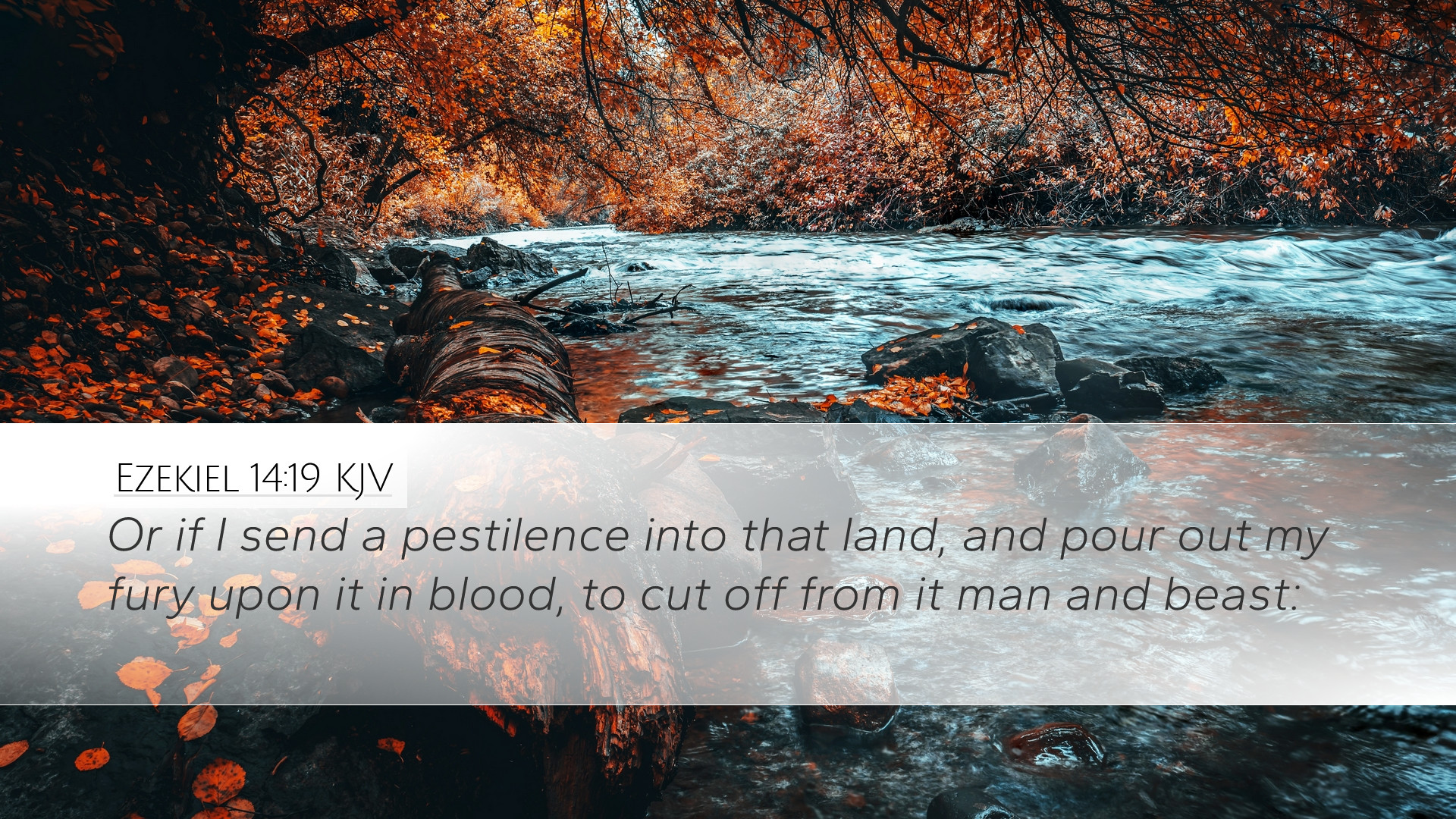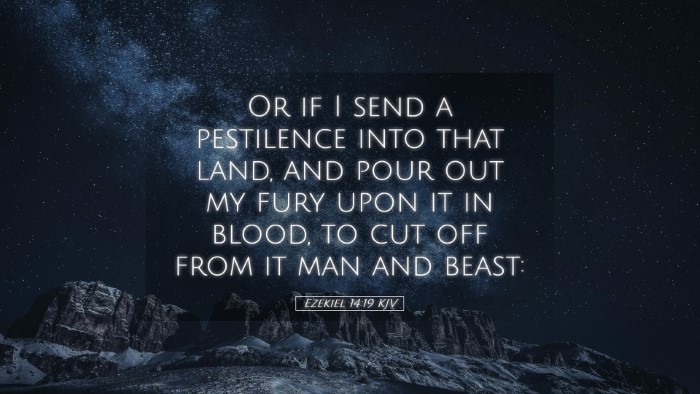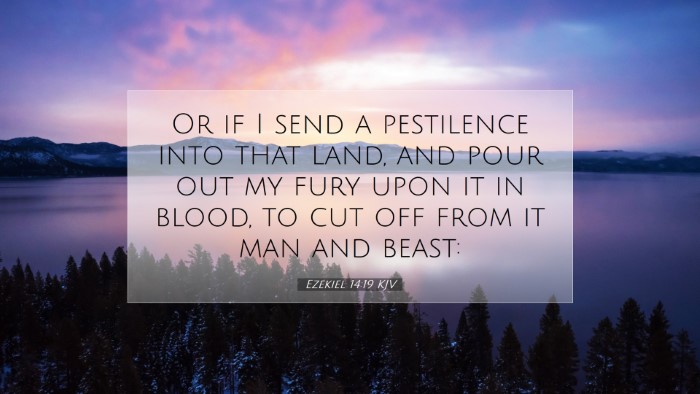Ezekiel 14:19 Commentary
Verse: "Or if I send a pestilence into that land, and pour out my fury upon it in blood, to cut off from it man and beast."
Introduction
The verse Ezekiel 14:19 stands as a stark reminder of God's sovereignty and the seriousness of divine judgment upon sin. This passage emerges in the context of a series of warnings from the prophet Ezekiel to a rebellious people who have turned from God. The insights provided by public domain commentators such as Matthew Henry, Albert Barnes, and Adam Clarke lend valuable perspectives to understanding the gravity of this declaration.
Contextual Overview
Ezekiel's ministry unfolds during a tumultuous period in Israel’s history, marked by idolatry, unfaithfulness, and moral decay. The preceding chapters lay the groundwork for understanding God's displeasure and the prophetic warnings that follow. Ezekiel 14, in particular, addresses the elders of Israel who seek guidance from the Lord despite their persistent idolatry.
Theological Themes
This verse underscores several theological themes significant for pastors, students, and scholars. These include:
- God’s Sovereignty: The passage illustrates God's absolute authority over creation and His ability to bring about judgment.
- Judgment and Mercy: God's willingness to send pestilence as an act of judgment highlights His righteousness, yet the call for repentance offers a glimmer of hope.
- Corporate Responsibility: The effects of sin extend beyond the individual to encompass the broader community, emphasizing the collective nature of judgment.
Commentary Insights
Matthew Henry's Perspective
Henry emphasizes that the pestilence represents a tangible manifestation of God’s wrath. He notes that God's judgment is not arbitrary but is a response to the persistent rebellion of Israel. Henry warns that such calamities serve as righteous retribution for sin, reminding readers that divine justice must be acknowledged. He intricately argues that God's judgments, even in their severity, point to the need for repentance and reconciliation.
Albert Barnes' Observations
Barnes expands upon the themes of pestilence as a critical instrument of divine judgment. He interprets the pestilence as indicative of God's desire to purge sin from the land. Barnes articulates that the imagery of cutting off man and beast symbolizes comprehensive destruction, signifying that the consequences of turning away from God affect all of creation. His analysis suggests that divine judgment often serves a dual purpose: to enact justice and to call the faithful back to covenantal faithfulness.
Adam Clarke's Commentary
Clarke offers a detailed examination of the nature of pestilence in ancient Israel. He highlights that such diseases were perceived not merely as physical suffering but as spiritual consequences of forsaking God. Clarke emphasizes that God, in His mercy, may delay judgment, hoping for repentance, but when persistent disobedience continues, severe judgments may ensue. His interpretation encourages readers to recognize the need for holiness and the peril of neglecting God's statutes.
Application for Today
The relevance of Ezekiel 14:19 transcends its historical context, serving as a bold reminder to the modern church regarding the seriousness of sin and the need for corporate and personal repentance. Contemporary believers are called to critically examine their lives, communities, and nations, recognizing that turning away from God invites His discipline and judgment.
- Call to Repentance: Church leaders and congregations must heed the call to turn back to God, acknowledging areas of compromise.
- Awareness of Consequences: Understanding that both personal and communal actions have spiritual ramifications encourages a culture of accountability and holiness.
- Hope in God’s Mercy: While the warnings of judgment are severe, they coexist with the eternal hope found in God's desire for reconciliation with His people.
Conclusion
Ezekiel 14:19 delivers a powerful message about God’s omnipotent presence and the consequences of rebellion against Him. Through the insights of esteemed commentators, we gain a deeper understanding of the character of God as both just and merciful. For pastors, students, theologians, and scholars, this passage challenges the faithful to respond with humility, repent from sin, and actively seek a deeper relationship with the Creator, who desires restoration rather than destruction.


